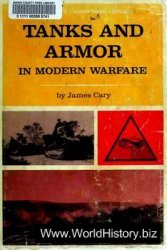The two earliest Arthurian texts exemplify the two forms of romance and saga. In Culhwch and Olwen, a Welsh prose story dating in large part from about 1000, Arthur is a tribal lord, chief of the princes of the island of Britain—never a king: Wales did not then, and scarcely does now, envisage such centralization—who assists his nephew Culhwch to win the beautiful daughter of the terrible Ysbaddaden, chief giant of the island of Britain. Interweaving folklore, comedy, and myth (a wise salmon, a teasing wedding-preparation test, and a ferocious giant boar who was once a wicked prince), this archetypal pattern of single-hero story was later sophisticated, and also simplified, into French feudal romance.
Another Welshman, Geoffrey of Monmouth, produced the original Arthurian saga in about 1136. The idea that he was a Breton draws merely on his criticism of the Welsh and his praise of the Bretons, a judgment naively unfamiliar with the incisive attitudes of writers, notably Celtic ones: the clerics who wrote the early Welsh saints’ lives at times ridicule Arthur to aggrandize their church. Geoffrey’s History of the Kings of Britain offers in fine Latin prose an origin-legend for Celtic Britain, founded by the Trojan exile Brutus, and rich in elaborated narrative and royal shenanigans. Arthur’s glory is the focal moment before the British are swamped by the Saxons: as a result the
Norman conquest of Arthur’s enemies is implied by Geoffrey to be a justified anti-English vengeance. Like any Norman king, Arthur boldly leads heavy cavalry against the whole of Europe, builds castles and cathedrals to confirm and ratify his triumph, and in equally Norman fashion suffers the treason of his family members.
For Geoffrey of Monmouth, Merlin is behind Arthur, if at some distance. Under this name are combined the Welsh Myrddin, a sixth-century forest exile and visionary (quite possibly a historical prince of Celtic Cumbria, remembered in Wales), and the late fifth-century myth of Ambrosius, a wonderful sub-Roman boy. As the archetype of knowledge in service of, and so inherently opposed to, power, Geoffrey’s Merlin outwits the pro-Saxon Vortigern and his doltish advisers, and then skillfully serves Uther, Arthur’s father, building Stonehenge as a war memorial to the British dead in the anti-Saxon wars. He also prophesies the Celtic reconquista of Britain, long awaited in Wales, but though he arranges Arthur’s conception, he never actually encounters the mythic king.
Arthur succeeds Uther when young, seizes his kingdom, defeats France, builds a great capital at Caerleon, and responds to insults from Rome by humiliating it in war. In this hubristic process, future figures of romance like Gawain and Kay lead Arthur’s columns in ferocious fighting, described in the Latin tradition of martial writing. But as Arthur is to seize Rome like his Celtic ancestor Brennus, he hears that Mordred (here just his nephew) has seized his own capital and queen. He hurries back, fights his usurper and—the first appearance of a crucial part of the myth—may or may not have died.




 World History
World History









